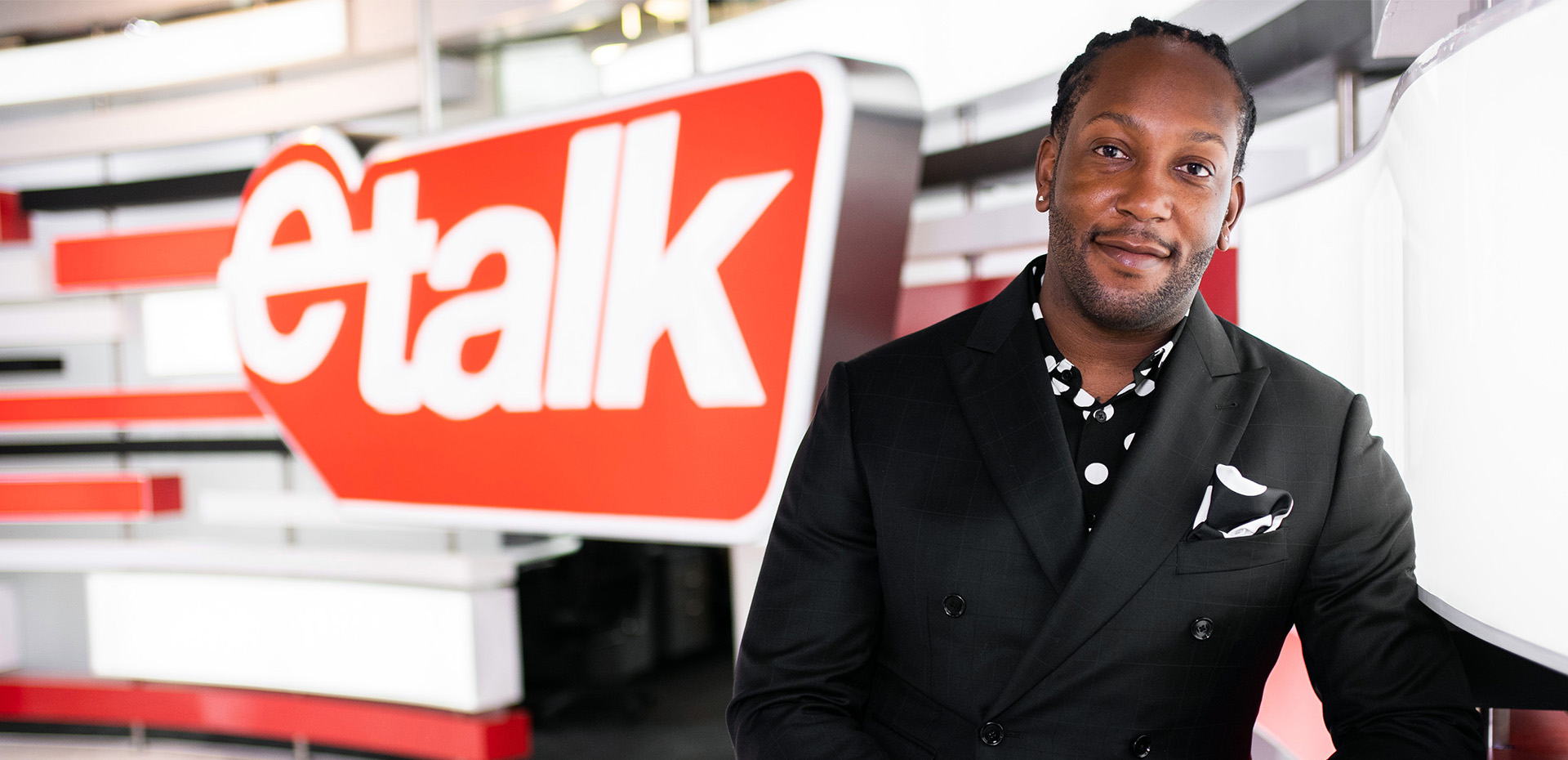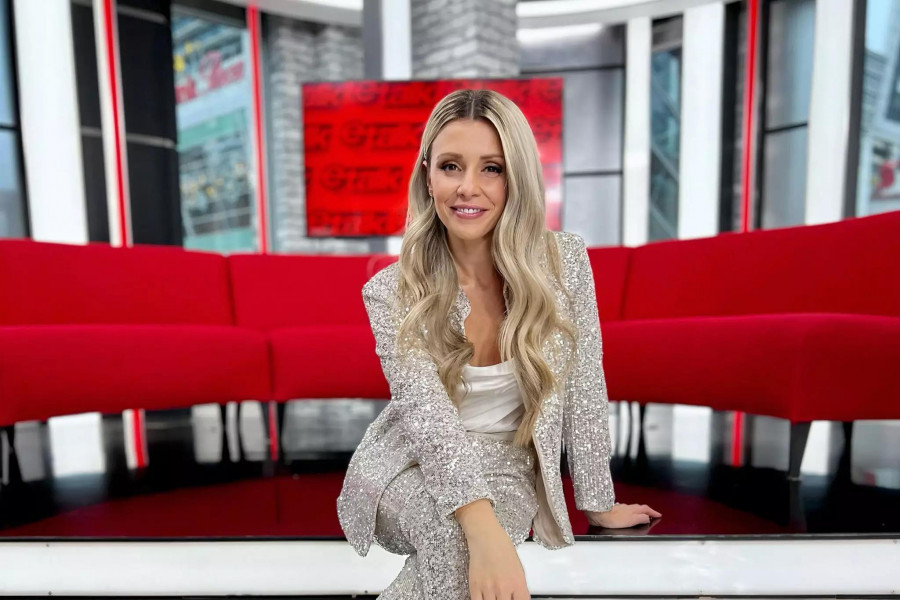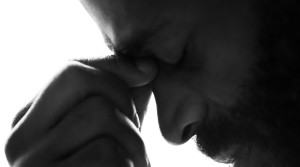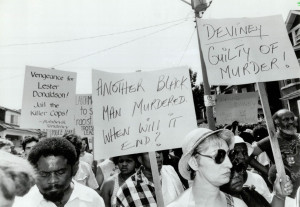Just a few weeks prior to Graham’s filing, long-time media personality Jennifer Valentyne posted a lengthy video on her social media platforms describing her experience working at Corus, exposing Q107 radio host John Derringer to be the exact person he was long rumoured to be—egotistical, sexist, arrogant—and very protected by Corus.
Having spent a few months recently as an employee of eTalk before leaving the media industry and heading to the non-profit sector, the headline caught my eye. Was this foreshadowing a wave of women in the media industry who would now be coming forward with gender discrimination claims?
There’s no denying that there is an industry-wide, heck, let’s call it a workforce-wide issue when it comes to gender inequality. And while I wanted so badly to cheer Danielle on, I found myself at odds when I began reading the disparaging remarks she made about my former colleague, Tyrone Edwards.

But first let me assert that I absolutely believe Graham’s claims will, and should stand up in court as gender discrimination. She says she was ‘dramatically underpaid,’ asked to work for free, and not permitted to shoot her portion of the show first while she was in the late stages of her second pregnancy. This meant she was standing for long periods of time in high heels at seven months pregnant. When she was let go, she says she was only given three months' pay despite 17 years with the company. While her husband, who was also laid off by Bell, was given three times that.
Graham’s claim alleges Bell Media is 'an old boys club,' and that eTalk host Tyrone Edwards, based solely on his gender, received a promotion she was led to believe she would get.
Back in 2020, eTalk anchor Ben Mulroney ‘stepped down’ to make way for ‘more diverse voices.’ In doing so, he expressed hopes that the show’s new anchor would be ‘Black, Indigenous or a Person of Colour.’ But it’s safe to assume that the real reason he stepped down was to avoid prolonging a publicity nightmare involving his wife, Jessica Mulroney, where she weaponized her whiteness and privilege to threaten the career of Black influencer Sasha Exeter in a very public dispute.
With all of this happening in the background, did Graham truly think that a white, blonde woman would be the one to replace the white son of a former prime minister with a nearly twenty-year history on the show? During a global racial reckoning? Certainly, she had to have known that bringing diverse voices to the forefront was the number one priority, not just for Bell Media, but for companies all around the world.
I scrolled through Danielle Graham’s Twitter, back to the year that changed the world. And like so many other media personalities, she appeared to be 'taking a stand' against racism. Her tweets outwardly celebrate the promotion of Edwards, calling the day the announcement was made ‘great,’ though we now know it was likely one of the worst in her life. She even retweeted an article written by Kathleen Newman-Bremang, calling out the wife of her ‘esteemed colleague’ Mulroney. Her Instagram profile is now private, but I was still able to verify that on June 2, 2020, there was a Black square posted to her feed which is still up, and reads “muted and listening.” But why pretend to be committed to anti-racism if it comes with fine print? And an expiry date?
Graham now asserts that Edwards was internally known to be 'grossly incompetent.' White people need to understand that Black people cannot shake reputations off the same way they can, so this kind of defamation could be incredibly damaging to his career. Also, the name-calling doesn’t necessarily substantiate the other grievances she’s listed, so why include it? She doesn’t even provide evidence to show how Tyrone was unqualified for the job.
I worked with Tyrone on both eTalk and The Social, and on a number of national specials, and there is nothing that comes to mind that left me with a 'grossly incompetent' impression of him.
In fact, he’s got quite an impressive resume.
Edwards has always done a lot for Bell Media, going back to his work as the host of Rap City, a gig he maintained from 2011 through 2018 when he joined eTalk. He offered a unique perspective into Toronto’s urban culture that I can assure you no one else in the entire network was suited to do. His connections, knowledge and dedication to ensuring Black culture were acknowledged and celebrated, were crucial in order for Bell Media to have any credibility with its Black audience and for CTV to distinguish itself from every other media company and network out there.
And let’s not forget what he did for the network in 2020. He appeared on an episode of The Social and bared his soul to the nation on one of the show’s most memorable episodes that followed the murder of George Floyd. Through tears, Edwards went totally off-script while describing his reality as a Black man in Canada. He weaved his personal and professional life into a beautiful, heartbreaking and brutally honest tapestry that most people couldn’t have imagined, despite the cold, hard evidence of anti-Black racism in this country. He delivered a very clear message that day and had it been delivered by anyone else in any other way, it wouldn’t have resonated with people the way it did.
Throughout history, white people have remained at the centrefold of our society. Everything from our laws to our standards of beauty to the way communities are policed has always been done with white people at the top of mind. And in 2020, things started to change. Whiteness and the privilege that came with it that worked to keep things like promotions and job opportunities within reach was now having an adverse effect, particularly on TV screens, where diversity was now so sought after.
Here was something they couldn’t insert themselves into. They couldn’t relate to it. And they couldn’t make it about themselves, though some still tried.
White people were forced to sit on the sidelines and watch on as the world called them out, putting white fragility on full display. Their Black colleagues suddenly became more visible as bosses started to have a vested interest in their Black employees—and it was a huge threat to the ease and preferential treatment they were accustomed to.
Not knowing how to cope, many bit their tongues, opting to appear as “woke” allies, swallowing their frustrations and hiding behind Black Lives Matter (BLM) hashtags.
We talk about allyship. We talk about doing the work. But people don’t understand that stepping aside so that Black colleagues can receive a hard-to-come-by promotion is doing the work. That is allyship. Understanding that as a white, blonde woman, you can go to any network and be given a job immediately. Can we say the same for Tyrone? A tall, dark-skinned man with locs?
It’s also ironic that Graham refers to Edwards as 'grossly incompetent' because the pair both appeared to be doing the same job. In fact, Edwards’ resume documents way more versatility and a level of philanthropy Graham couldn’t catch up to if she started yesterday.
He began in the industry in 2011, just a few years after Graham. It’s odd that someone so ‘incompetent’ would later be asked to co-host the Golden Globes, the IHEARTRADIO MMVAs and the red carpet, the MUCH Countdown and to appear as a fashion expert on Celebrity Style Story. From 2020 through to 2022, I worked on three national presentations that he hosted, including two Bell Let’s Talk Day specials, and a special called Change & Action: Racism in Canada.
Edwards has coached and mentored underprivileged youth in the city, kickstarting See You Soon Toronto, a charitable organization featuring limited edition art and apparel with an optimistic message and proceeds going to COVID-19 relief efforts.
Before that, Edwards was the founder of Concrete Hoops, a non-profit basketball camp that helps players build life skills. He served as a program leader with the well-known Remix Project, helping kids learn the fundamentals of arts and entertainment and supporting kids in their educational pursuits. And to top it all off, Edwards received the 2016 Mandela Legacy Hope, Success, and Empowerment Award, alongside Naomi Campbell and Reverend Al Sharpton.
When Black people say we have to work ten times harder, this is what we mean. Even when we’ve done that work, we only receive a fraction of the credit and recognition that white people do for mediocrity. No matter what we do, no matter the wealth of experience we come with, the stereotypes of unprofessionalism, incompetence and inexperience will always be in tow.
Reading her claim, I found myself asking whether I am a woman before I am Black, or whether I am Black before I am a woman. These are not questions I should have to be asking myself when I am trying to decide whether or not you deserve my support. And supporting you should not mean turning my back on my Blackness—or on Tyrone Edwards.
But this is white feminism at work.
White feminism will gaslight you into believing that you can only be one thing at a time. That your identity can’t intersect. That if you align with your race, instead of your gender, you’re not a feminist. You’re not for equality. White feminism is the perpetuation of intersectional inequality and massive gaps, biases and oversights. This feminism was not made for us.







